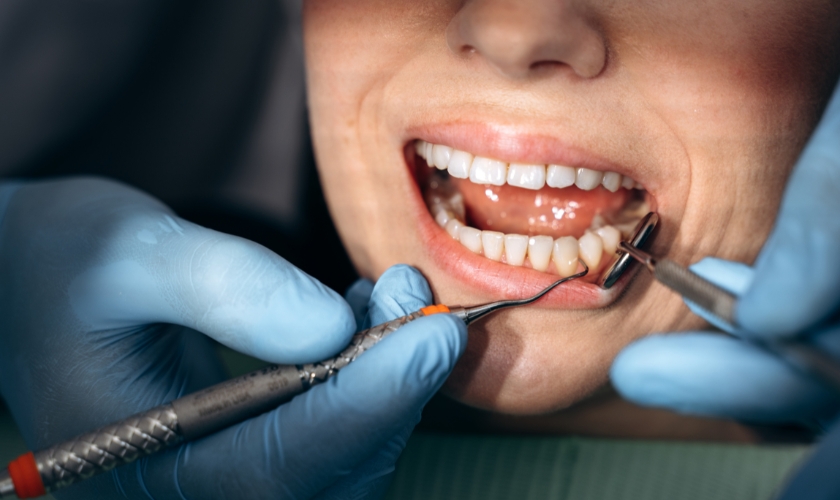How to Prevent Cavities: Tips from Dr. Pak

Preventing cavities is not just about avoiding sugary foods or brushing your teeth twice a day. It’s a combination of daily habits, proper dental care, and a bit of awareness about what’s happening in your mouth. In this article, Dr. Pak from Rocklin will share some key ways to keep your smile both healthy and cavity-free. Let’s explore the tips and habits that can make a significant difference in oral health.
Understanding Cavities and What Causes Them
Cavities are small holes in your teeth caused by tooth decay. This decay occurs when bacteria in your mouth feed on sugar and starch, producing acid that erodes your tooth enamel. Over time, the enamel weakens, which may lead to cavities. While diet is a factor, it is not the only one. Poor oral hygiene, dry mouth, and even genetics can contribute to cavity formation.
You will require a proactive measure to prevent cavities that goes beyond just brushing. Now, let’s look at how you can protect your teeth.
1. Brush and Floss Regularly
It’s the simplest recommendation, but it’s what works: brush with fluoride toothpaste twice a day and floss once a day. It removes the plaque, that sticky film of bacteria, in your mouth. Fluoride toothpaste helps strengthen your tooth enamel to resist acid attacks. Flossing removes food particles and plaque from between the teeth, where your toothbrush can’t reach.
2. Choose a Tooth-Friendly Diet
What matters most is what you eat and drink. Your Rocklin dentist may recommend limiting sugary snacks and drinks, as they can feed the bacteria in the mouth that could become harmful. Instead, what will help strengthen the teeth by focusing on:
- Dairy products, such as cheese and yogurt, are high in calcium.
- Fruits and vegetables stimulate the production of saliva and help clean your teeth to maintain good dental health.
- Nuts supply a natural source of calcium and phosphorus.
- Drinking plenty of water also helps to wash away food particles and bacteria that could cause plaque buildup.
3. Regular Dental Checkups
Even with good home care, regular dental visits are necessary to maintain optimal oral health. Dr. Pak recommends a routine dental check-up once every six months. These visits enable the early detection of any problems and include professional cleanings performed by one of our experienced hygienists, which remove plaque and tartar buildup in areas your toothbrush can’t reach. Your dentist can also provide fluoride treatments to strengthen your enamel and sealants that will protect the chewing surfaces of your back teeth.
4. Consider Dental Sealants
Sealants are thin coatings applied by the dentist to the chewing surfaces of your back teeth/molars. The sealant acts as a barrier, shielding the deep grooves of your molars from food particles and plaque. This is especially helpful for children and teenagers, as well as beneficial for adults.
5. Use Mouthwash
Mouthwash can be a great addition to an oral care routine. Look for a fluoride-based mouthwash, as it will strengthen your enamel and help prevent cavities. Another benefit of mouthwash is its ability to kill bacteria, which helps prevent plaque and bad breath.
6. Hydrate
Drinking water throughout the day helps keep you hydrated and facilitates the proper flow of saliva. Saliva is the natural defense of your mouth against cavities. It neutralizes acids, washes away food particles, and keeps the enamel strong. Keeping your mouth hydrated prevents dry mouth, a condition that increases the risk of cavities.
It takes a great deal of effort and dedication to prevent cavities, a process that is lifelong. By following these simple yet effective tips, you can significantly reduce the risk of cavities and enjoy a healthier, brighter smile. Dr. Pak and the team at Discover Dental Rocklin are here to guide you on your journey to optimal oral health. If you have any questions or would like to learn more about cavity prevention, schedule a consultation with us today.
FAQs
1. How often should I get a dental checkup?
A dental checkup every six months is ideal for maintaining oral health. Regular visits allow your dentist to catch issues early and provide professional cleaning.
2. Can I prevent cavities without fluoride toothpaste?
Fluoride toothpaste is highly recommended because it helps strengthen enamel and prevent cavities. Using fluoride is one of the most effective ways to protect your teeth.
3. Are dental sealants effective for adults?
Yes, dental sealants can help protect adult teeth, especially the molars, from cavities. They are a preventive measure that helps keep your teeth safe from plaque buildup.
4. How do I know if I have cavities?
Early signs of cavities include tooth sensitivity, pain when eating, or visible holes in your teeth. If you notice any of these signs, schedule a visit to your dentist.




